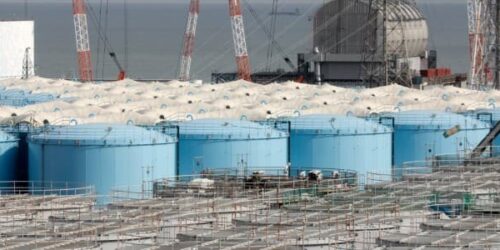Japan will release some 1 million tons of contaminated water from the Fukushima nuclear power plant into the ocean, the country’s government said amid strong opposition from Japan’s neighbors.
The move, according to them, was “extremely irresponsible”, Reuters reports, adding that Japan’s Prime Minister responded with “Releasing the … treated water is an unavoidable task to decommission the Fukushima Daiichi Nuclear Power Plant and reconstruct the Fukushima area.”
Media reported last October about the plans for the radioactive water from the destroyed power plant, noting that it would be diluted before being released into the ocean. Earlier reports from 2019 cited Japan’s environment minister Yoshiaki Harada as saying the plant’s operator Tepco was running out of storage space for the water.
“The only option will be to drain it into the sea and dilute it,” minister Harada said in September 2019.
Despite the absence of viable options, environmental groups and fishing industry organizations are against the release of the liquid into the sea, even with assurances from scientists that the risk of contamination is low. The water will be diluted to reduce the concentration of radioactive material 40 times, according to some of the reports from last year. The release was scheduled to begin in 2022.
Back in 2018, official calculations by the Nuclear Damage Compensation and Decommissioning Facilitation Corp pegged the cost of decommissioning the Fukushima nuclear power plant at some $75 billion, which was a sum four times larger than the initial estimate of how much it would cost to put Fukushima out of commission.
Half of the money will be used to tackle the radioactive water buildup at the site and for removing radioactive fuel from the fuel pools. A small amount of funds will be used to research ways of retreating melted fuel from the reactors that were damaged during the 2011 tsunami disaster.





